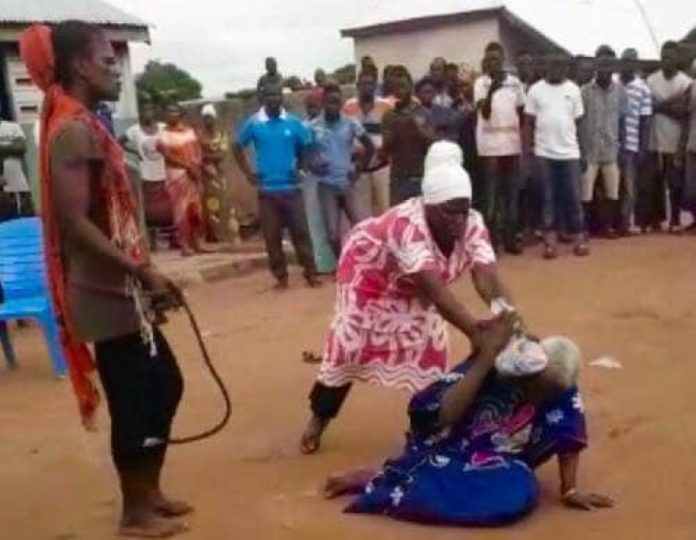For almost two years, a young man believed to possess the gift of identifying and neutralizing witches has been operating from his base in Widana, a village under the Pusiga District in the Upper East Region of Ghana. The village shares border with the Republic of Togo.
Sadly, despite numerous dehumanizing video and audio recordings of mostly accused women allegedly confessing as witches, there was no action by the police to stop the disturbing trend due to prevailing religious and cultural norms.
In some of the recording, a young man is heard/seen engaging victims to extract a confession from them.
After almost two years of operation, it was only last week the Culprit and his accomplices were arrested following the successful petitioning of the IGP by the Sanneh Institute and advocacy from the media notably TV3.
The arrest has however been met with mixed reaction among the people of Bawku- a sigh of relief by those whose relations have been “identified” on one hand and those who perceive the young man as a redeemer and believe witchcraft is rampant in Bawku and its environments.
In the said petition, https://www.tsinet.org/petition , the Sanneh Institute observed that the belief in witchcraft goes back many generations and is deeply rooted and widespread in the Ghanaian society, across religious faiths, among literates and illiterates and in both urban and rural settings.
Whiles commending the Petitioners and the IGP for the swift response to end the possible human rights violations, RISE-Ghana calls for a sustained dialogue to ensure more responsive and accountable institutions and citizenry.
- Support the petition, https://www.tsinet.org/petition to criminalize witchcraft allegations in Ghana.
- The IGP and the Ministry of Interior should use the situation as an entry point to increase police coverage to the UN Standard of minimum of Police-Citizen ratio of 1:500.
- The Pusiga District Security Committee (DISEC) should activate local government provisions that require active participation of citizens in local governance by using Ghana’s recently adopted Popular Participation (P2) policy and provisions such as the Public Relations and Complains Committees (PRCC) among others.
- The novel “I Am Aware” project pioneered by CDD-Ghana and funded by the William and Flora Hewlett Foundation which is empowering citizens to serve as “Social Action Groups”, the Oxfam/WILDAF led European Union funded Enough Project on ending Sexual and Gender-Based Violence in Ghana and efforts by the Songtaba and Action Aid to disband witches camps should be replicated across the country to increase citizen efficacy and state responsiveness and accountability.
- Stakeholders involved in the adjudication of the case should take into account local religious and cultural norms in dealing with the situation to manage the aftermath and avoid possible negative consequences such as the persecution of the “alleged witches”.
By: Awal Ahmed Kariama
Executive Director
RISE GHANA




